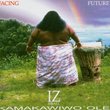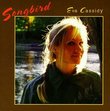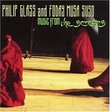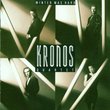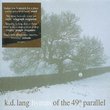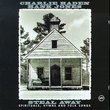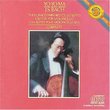| All Artists: Philip Glass Title: Mishima: A Life In Four Chapters (1985 Film) Members Wishing: 1 Total Copies: 0 Label: Nonesuch Original Release Date: 9/20/1985 Re-Release Date: 10/25/1990 Album Type: Soundtrack Genres: Dance & Electronic, Soundtracks Style: Techno Number of Discs: 1 SwapaCD Credits: 1 UPCs: 075597911329, 075597911312, 075597911343 |
Search - Philip Glass :: Mishima: A Life In Four Chapters (1985 Film)
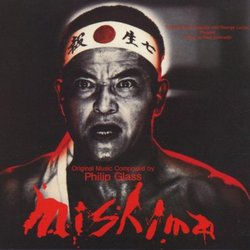 | Philip Glass Mishima: A Life In Four Chapters (1985 Film) Genres: Dance & Electronic, Soundtracks
Writer-director Paul Schrader's films are always as memorable for their music as they are for their visuals--sometimes more so. Think of Giorgio Moroder's synthesizers pulsing through Cat People; think of Blondie's anthem ... more » |
Larger Image |
CD DetailsSynopsis
Amazon.com Writer-director Paul Schrader's films are always as memorable for their music as they are for their visuals--sometimes more so. Think of Giorgio Moroder's synthesizers pulsing through Cat People; think of Blondie's anthem for American Gigolo; think of Scott Johnson's remarkable score for Patty Hearst--and think of the full suite of music composed by Philip Glass for Schrader's ode to the deeply conflicted Japanese novelist Yukio Mishima. With its gilded, impressionistic set and its plot-eschewing cinematic vision, Mishima depended upon Glass's compositions for grounding. Despite the Japanese setting, the music is pan-global, typical of Glass's genre-absorbing minimalist style. A standout track is "Osamu's Theme," which features a catchy rock & roll guitar part against a string setting. And the album's quartets feature none other than the Kronos Quartet. --Marc Weidenbaum Similarly Requested CDs
|
CD ReviewsMishima shaolindragon88 | Los Angeles | 06/23/2001 (5 out of 5 stars) "I have listened to other Phillip Glass works. I find Phillip Glass to be abstract, like a Rothko painting. It is mesmerizing and challenging, but rarely does it take you a level of passion that this work, Mishima, does.Perhaps it is the subject matter. The complex and not easily explainable life of writer Yukio Mishima. The movie studies the odd life of Mishima by examining his novels. The underlying themes of self-obsession, narcism, deep passion, and aweseome forces of beauty through death, are captured very well through musical expression.Each piece captures some essence of its subject matter, without being pandering or obvious. Other than the wind chimes in the Intro, there are no obvious references to Japanese music, ala Madame Butterfly. The melodic elements are most certainly western, yet its interpretation of the human feelings behind each of the stories is quite universal and rises above stereotype. You need not love Japan or Japanese music or literature to love this work.It uses the traditional dramatic structure of a movie to move you from scene to scene. The final climax of Mishima's suicide is understood musically, as the the climax of a life's work. Whether or not we morally agree with Mishima's act, it serves as a symbol how each us move to some sort of great work of art which is our own lives." Glass's breakthrough.... stuartm | United States | 02/26/2003 (5 out of 5 stars) "for me at least. This was the first CD of his where the full emotional potential of his music was realized. Some credit is due the Kronos Quartet who have never been better then they are here. And the remainder goes to PG for moving beyond the confines of strict minimalism to incorporate elements of traditional melody and harmony within the rhythmic structure of his compositions. This is accessible, powerful, emotional music and has never worn out its welcome. BTW, the final scene in the Truman Show uses the main theme of this soundtrack, so if you found the triumphant "rush" of that finale compelling, you will love to hear the rest in this soundtrack." Astounding Michael Sweeney | 01/12/2000 (5 out of 5 stars) "This is one of the most passionately spiritual pieces of music I have ever heard. Like all of Phillip Glass' scores, it stands well on its own as a seperate entity. Perhaps because of the subject matter and most definitely because of Glass' overt bent towards Eastern spirituality combined with his western rhythmic sensibilities, this disk is essential. I can't recommend it enough."
|

 Track Listings (14) - Disc #1
Track Listings (14) - Disc #1